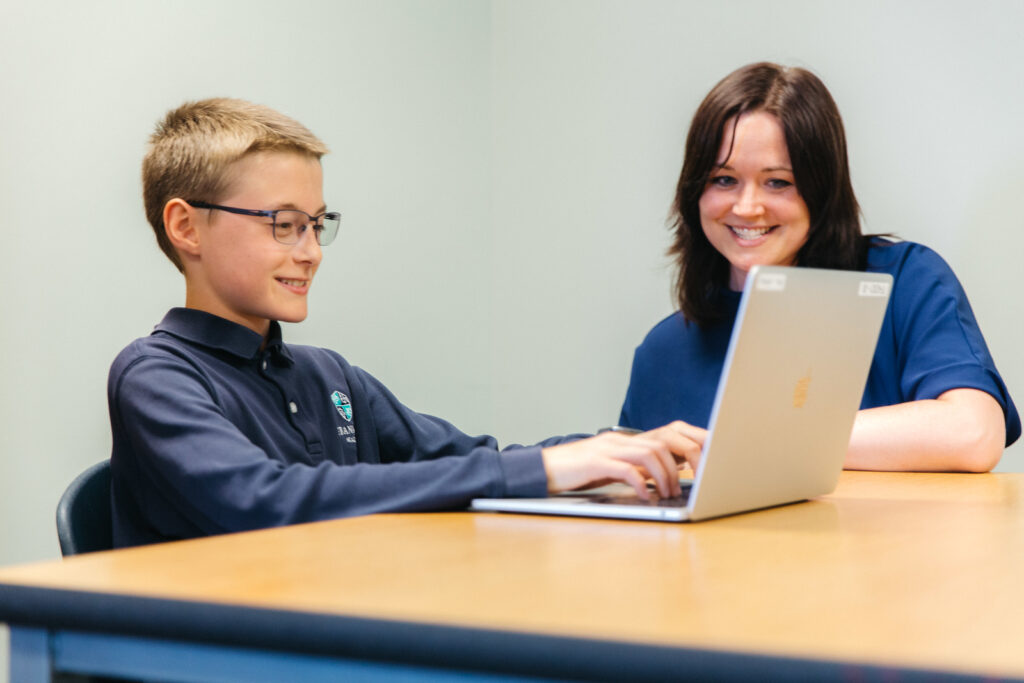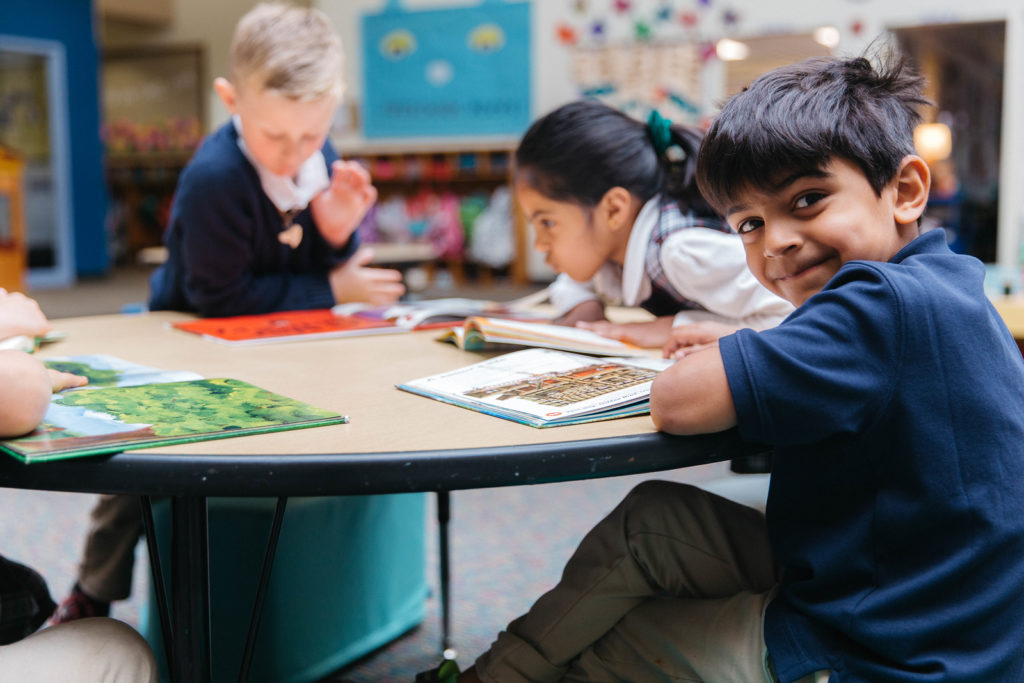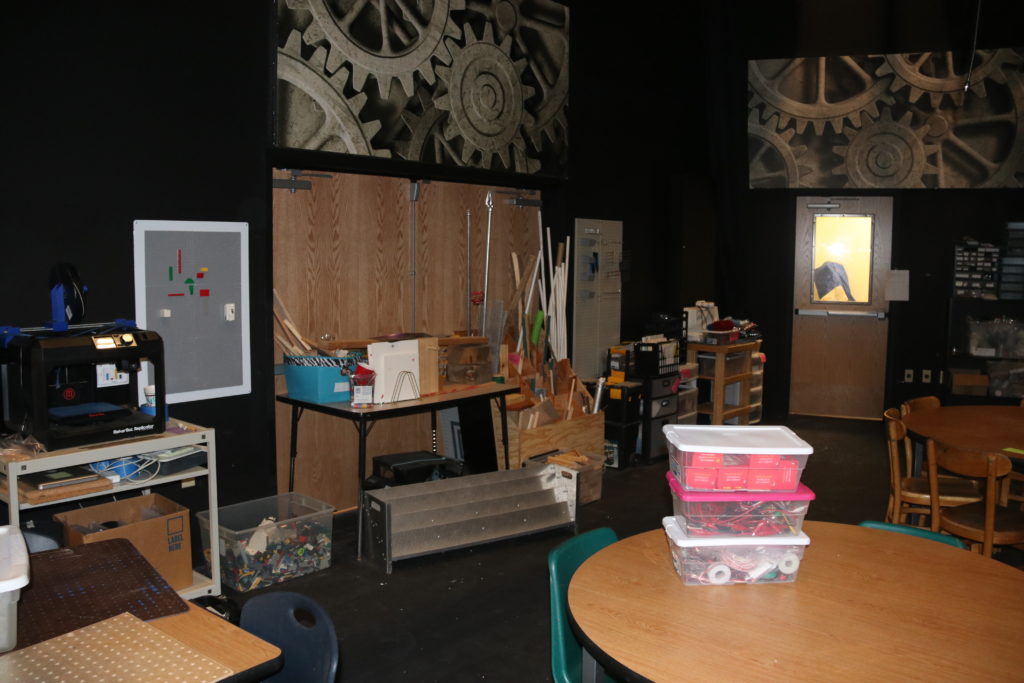Students at Franklin Academy receive lots of support in their development toward becoming confident writers. This has a lot to do with the fact that our small class size allows teachers the time to provide step-by-step help with the writing process and personalized feedback for students. It’s through brainstorming, drafts, reviews by peers, edit support by teachers, and revisions that students learn to improve their written communication.
Our Third Grade teachers, Mrs. Misday and Mr. Schultz, just completed a writing activity to go along with the book The Best Part of Me, written by Wendy Ewald. This project is an amazing way to encourage a positive self-image to students. It is also a great way to help build our students up by helping them see themselves (and their classmates) in a positive light. In the process of asking “What is the best part of you?,” students respond in moving and sometimes funny ways. The thoughts are generated by the students, but the teachers help them toward accomplishing a final product. Students learned about adjectives and they had to select at least three reasons to support their selection.
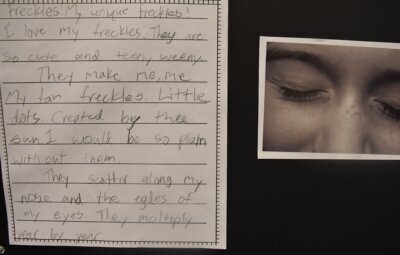
Preschool and Lower School help build strong foundational building blocks by helping students with fundamental sounds and phonics. The sweet student below, Lincoln, isn’t even in Kindergarten, yet. He is already working on his site words and encouragement from the lovely Mrs. Dizon is always warm and genuine.

4th Graders finished five paragraph writing and the example above is an example of student work. It is in 5th Grade that our Middle School students’ writing moves toward becoming polished. Under Ms. Rodrigo’s guidance, our 5th Graders are already working on grammar, vocabulary, and book projects. In addition to getting used to a new middle school schedule, they are learning to follow rules regarding comma use: to set off interruptions and interjections, to set off appositives, and to set off explanatory phrases. They are learning apostrophe use in contractions, singular possession, and plural possession. These rules are taught through lessons and students then practice by modeling hat they have learned.
Our 6th Grade students are wrapping up their Family Narratives after learning about the Six Traits of Writing (focus on ideas, organization, word choice, sentence fluency, voice, and conventions). They need to have an introductory hook to start off their expository and to follow a rubric. For example, Emily B., drew the reader in with a natural witty way of writing: “Every Thanksgiving we have a giant Thanksgiving feast! The whole family comes and brings food. We have as much food as we can stuff ourselves with. This is my family and, surprisingly, I still love them, even my little demon cat that sometimes wants to scratch my eyes out.” The students shared about different members in their family and often became tender-hearted in their gratitude for these loved ones. Like Bjorn H., wrapped up his paper wrote: “In conclusion, I love my entire family, and no one can beat them. They have been amazing to me. They are friendly, kind, and loving. They are the best family I could possibly have.”
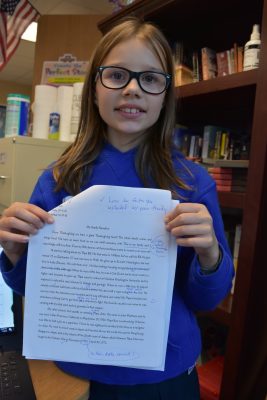
Teachers who are imaginative can teach language skills in an interesting and effectively way. As a result, they can help develop students’ creative self-expression. In these projects, the language learning tasks aim at developing students’ thinking skills, too. Writing is a process that requires support and consistent guidance with a constant rotation of prewriting, writing, revising, editing, and publishing. It is fabulous that our students get so much support, investment, and guidance from their transformational teachers.
